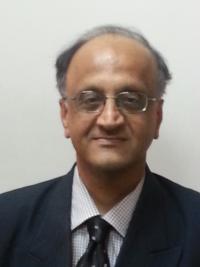Indian Media's Dickensian Age
About the Speaker:
About the Speaker:
About the Speaker:
Jonathan Shainin is the Online News Editor at The New Yorker. From 2010 to 2013, he was the Senior Editor of The Caravan, India’s first narrative journalism magazine, now widely regarded as one of the country’s most prestigious publications.
About the Speaker:

Though dynasty remains vitally influential in electoral politics – and a focus of growing resentment among those who believe Indian society is generally becoming more meritocratic – it may not be as significant a force as it looks at first sight. The most important politicians found another route to the top: in the upper echelons of many parties, the paramount leaders are not beneficiaries of nepotism, and this does not seem likely to change any time soon.
Dr. Kapila Vatsyayan (1928-2020) was a Founder-member and Life member of UPIASI and former Vice-President of the UPIASI Governing Council, 1995-2011. She was also on the CASI International Advisory Board (IAB) from 1992 to 2006 and made an Honorary Life Member in 2006.
 Dr. Eswaran Sridharan
Dr. Eswaran Sridharan
Director and Chief Executive Officer

Do parties and their local agents condition access to government services and benefits from government welfare schemes on how voters vote or are expected to vote? This political strategy, which social scientists refer to as clientelism, depends on a massive investment in local leaders who collect information on voters’ party preferences, vote choices and intentions, as well as which inducements will convince voters to support their party at the polls. This strategy also importantly depends upon the credible threat of punishment when a voter is found to vote the wrong way.


India is facing major challenges in higher education. In 2007, Prime Minister Singh noted that in almost half of India’s districts, higher education enrollments were “abysmally low” and that two-thirds of Indian universities and 90 percent of Indian colleges were rated as below average on quality parameters.